Being the parent of a teenager can involve navigating tricky topics, like death and dying. At Your Teen, we know that it can be helpful to hear from other parents and teens who are dealing with those issues, and to get helpful advice from a parenting expert who cares. Here’s how one family handled the death of a grandfather along with expert advice for helping teenagers to process death and grief.
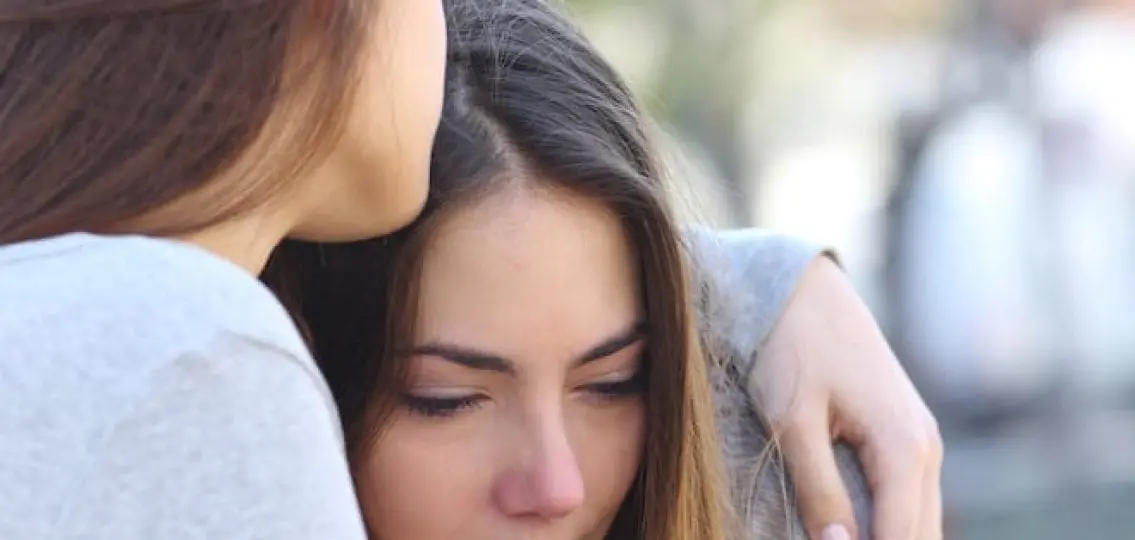
 TEEN | By Cassidy Hilmar
TEEN | By Cassidy Hilmar
When we reached my grandfather’s room, I held my breath. Everyone told me to expect the worst, but I didn’t know what the worst looked like—until I saw my once-lively, bright-eyed grandfather sprawled out on a bed with thin sheets covering his dwindling figure. His eyes looked glossed-over and dull as he stared blankly in the direction of a program playing on the small television.
My Aunt Amy and I walked over to his bed and both of us kissed his forehead. She made small talk for a while, but I knew it was hurting her. I sat quietly, wishing I could do or say something to make it all better.
“Do you know our names?” my aunt asked.
He uttered an almost indecipherable “yes,” nodding his head.
“What are they?” she prodded.
He let out a breath, while Aunt Amy and I held ours. His response gutted both of us.
“Rupert and Richard,” he declared.
I tried to hide the tear sliding down my face. My mind raced backwards two years, when my friend buried her head in my embrace and whispered, “I wish it was over … I wish she would just die.”
I’d frozen. How could someone say that about their own mother?
Her mom was suffering through an aggressive stage 4 cancer, and my friend was forced to watch, powerless, as the most important person in her world deteriorated before her eyes.
Now I was navigating similar waters, but with my grandfather. A year earlier, he’d had a stroke. Like the fighter he was, he began to recover. Nothing could bring him down – until he had another stroke on the opposite side of his body a month later.
Together, those strokes overpowered the strongest man I had ever met, and he began to decline rapidly. He was confined to a bed and could barely move.
He’d been so fiercely independent, and now he had to be spoon-fed just to stay alive.
He had once loved talking, but after he got sick we couldn’t get a word out of him. Soon, it became clear his condition would worsen—and we would be forced to watch him struggle to control a body that no longer followed his commands and to wait patiently while he mentally scrambled to figure out the word for yogurt.
Over time, he faded into a stranger we couldn’t recognize. A stranger who couldn’t talk, laugh, sing, walk his obnoxious but beloved dog, move on to the thousandth level of Candy Crush (a late-life addiction), or yell at the football players on TV as if they could hear him.
I couldn’t help but think that my grandfather would cringe if he could cognitively grasp what had become of him. Even at 78, he had been one of the most vibrant people I knew. He dove for the ball during beach volleyball and was the first to hop on an inner tube in Lake Tahoe. And no matter how many times he injured himself, he’d get back up and keep going—just like an athlete determined to push past the pain of an injury.
He doted on his nine grandchildren, lifting up the ones he could and relentlessly tickling the ones he couldn’t. We all used to say that he had never met a stranger. He would talk to anyone and everyone who would hear him.
| [adrotate banner=”141″] |
I knew my grandfather wouldn’t want to be stuck in a wheelchair staring blankly at the walls. He wouldn’t want to listen to the myriad activities going on around him without participating. He would have wanted to be the lively center of attention, as he used to be.
My grandfather was someone I looked up to, someone I wanted to emulate. How could I look up to him if I couldn’t even recognize him? I had always felt close to my grandpa. I should have been able to help him. Yet I was as helpless as he was.
As his health deteriorated, so too did my confidence that I could hold it all together. I couldn’t be calm or at ease around him as everyone else seemed to be—and I hated myself for it. I hated myself for walking up to his wheelchair to say “Hi” at family events but feeling paralyzed as I struggled to plant a kiss on his forehead and then retreated to the bathroom to cry. And I also hated that I couldn’t be strong for my mom and my family.
We were trapped in this purgatory for more than a year. Waiting for something—anything—to happen. And while I prayed for my grandpa to get better and revert back to the man I knew and loved, deep down I knew nothing could improve for us until it got worse.
I thought again about the words my friend said to me so long ago and I knew my nightmare had become my truth: I wanted my grandpa to die.
I wanted him to escape the pain and break free of his decrepit body.
And I wanted my family to finally be able to grieve what had already been lost for months: our patriarch.
Minutes after he died, nearly a year after his second stroke, my mom told me she saw two hummingbirds dancing in a nearby tree. In the last years of his life, he filled hummingbird feeders with sweet nectar so he could watch the birds flutter about in his backyard. After he passed away, each one of his family members began doing the same.
Now when I see hummingbirds playing in the sunshine, instead of feeling pangs of sorrow, as I had when he was alive, I feel overwhelming peace. It’s as if I can feel my grandpa’s love for us, as if he is right by our sides, finally free.
Cassidy Hilmar is a senior at Beckman High School in Irvine, California, and plans to go to college next fall.
 PARENT | By Shannon Hilmar
PARENT | By Shannon Hilmar
“Since Grandpa passed away, everyone seems much better,” my daughter, Cassidy, said as we drove home from an impromptu family get-together.
Her words cut me to the core.
My dad had heart surgery in January 2017, followed by complications ranging from strokes to a life-threatening bacterial infection. The repeated attacks on his system transformed him. Once a prankster, poet, and fitness enthusiast, he now sat motionless in a bed or chair, unable to spoon his own food.
During my twice-weekly visits, I updated my dad on every detail of my life. I told him what my kids were doing, what I was doing, what was going on in the world. When news ran out, I recalled funny stories from my childhood with him, all while feeling conflicted about missing time with my own children. No matter where I was, I felt guilty.
But watching my three kids grapple with emotions they couldn’t name? That was heartbreaking.
My 11-year-old tried to engage my dad in conversation. Sometimes it worked. Most of the time it didn’t. My 14-year-old talked at my dad—whether he responded or not. And Cass? Cass struggled.
Always the one to walk into a room like she was running the show, she suddenly became a wallflower. She was nervous, antsy, uncomfortable—but only around my dad. She kissed him, said hello, then shied away.
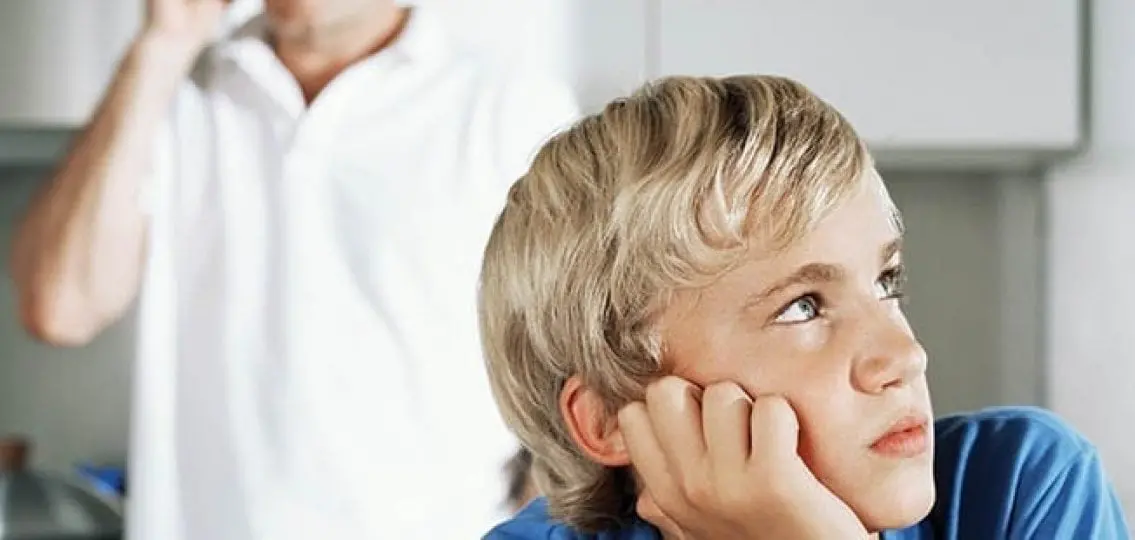
My dad was a prankster, and Cass was his partner in crime. They loved being silly together. After our visits, she felt guilty and sad because she didn’t know how to be with him anymore. “Everyone else seems to know what to do, but I feel so uncomfortable,” she said. “I am almost afraid to touch him. It’s just not him.”
She was done with limbo. She wanted him to die. And she wanted life to go back to “normal.”
She didn’t understand that while our guilt over how to best be with him might dissipate, our lives would never be the same.
The gaping hole my dad left behind can never be filled. Every celebration, no matter how joyous, will not be complete without that missing puzzle piece. As a 17-year-old in her prime, Cass doesn’t fully grasp that. And I’m glad she doesn’t. I’m glad she can be in the moment without looking back on the past—without missing my dad.
Five days after my dad died, Cass dressed in a stunning blue gown (my dad’s favorite color) and attended the prom with her boyfriend, while I looked on mired in a complex mix of joy and grief. I tried to be in the moment with Cassidy while simultaneously stifling my pain. Knowing this was just one of life’s wonderful moments ahead of us without him.
“So yes, Cassidy, everyone seems so much better now,” I said. “But really, we are just hiding the pain. We’re shedding our tears behind closed doors. And, those who spent our lives with this loving, larger-than-life guy, we’re grieving every day.”
Shannon Hilmar is a mother to three children and a health clerk at an elementary school in Tustin, California.
 EXPERT | By Casey Durkin
EXPERT | By Casey Durkin
A grandparent’s illness is often a teen’s first encounter and struggle with potential loss. The death of a loved one—whether this is a grandparent, parent, sibling, or dear friend—can be a distressing experience for any teen.
Teens often work hard to hide their feelings.
In spite of what they may show outwardly, inwardly teens have the capacity to have exceptionally strong and deep feelings of loss.
For this reason, it is important that adults support teens who are ready to return to their typical activities. Often, teens turn to their peers and their normal routines for support. They may wish to return to school days after a parent’s funeral, when adults may need to take off a week or two or more from their jobs. It’s important that we understand this behavior to be normal and, likely, healthy.
Teens don’t always want to talk about their deep feelings. However, they are often willing to share their feelings in other ways. Teens may take opportunities to express their grief in activities such as creating a collage of photos and memorabilia of the deceased for others to reminisce and enjoy, writing a poem, or even helping with the eulogy.
Cassidy’s essay above is an exceptional example of a teen expressing deep feelings through writing. Many adults would be upset (just as Cassidy was when her friend shared her own feelings) that she wanted her grandfather to die. Watching your loved one’s health change dramatically is overwhelming. Cassidy was expressing love and compassion in her wanting her grandfather’s pain and deterioration to stop.
Adolescence is a vulnerable period. Many teens may identify with Cassidy’s description of feeling paralyzed at family gatherings or struggling to publicly display her love by planting a kiss on her grandpa’s forehead. Paralyzed and struggling—very much normal parts of adolescence. All big feelings are appropriate at this time, including anger. Anger is a very normal stage of grief for all ages.
Cassidy’s mother, Shannon, understands the role Cassidy played in her grandpa’s life, the true connection her father and her daughter shared. Shannon’s sharing the story of the two hummingbirds following her father’s death was a true gift not just for Cassidy but for all family members.
Establishing new traditions through grief can be a valuable coping tool.
As Cassidy shared, each family member now filling hummingbird feeders is a great example of a new tradition that provides healing and legacy.
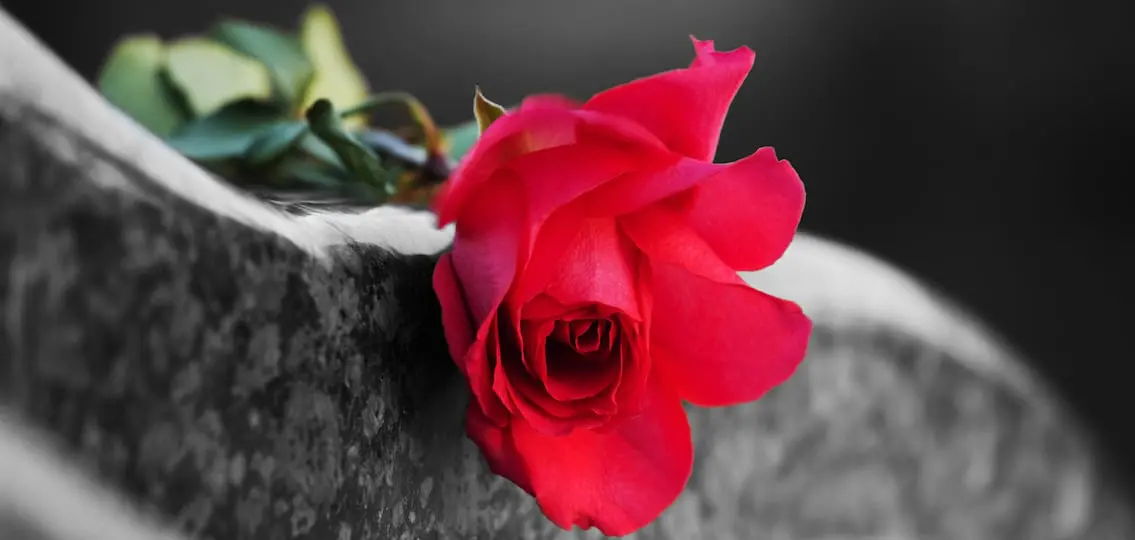
Grief can be overwhelming for some teens. It is important to know when to refer a teen to a professional. Signs of depression, a teen isolating themselves, and changes in behavior and grades are all concerns that are best addressed with professional help.
Casey Durkin, a licensed independent social worker, is the director of children and family programs at The Gathering Place, a nonprofit serving individuals and families facing a cancer diagnosis. She has over 20 years of clinical social work experience.
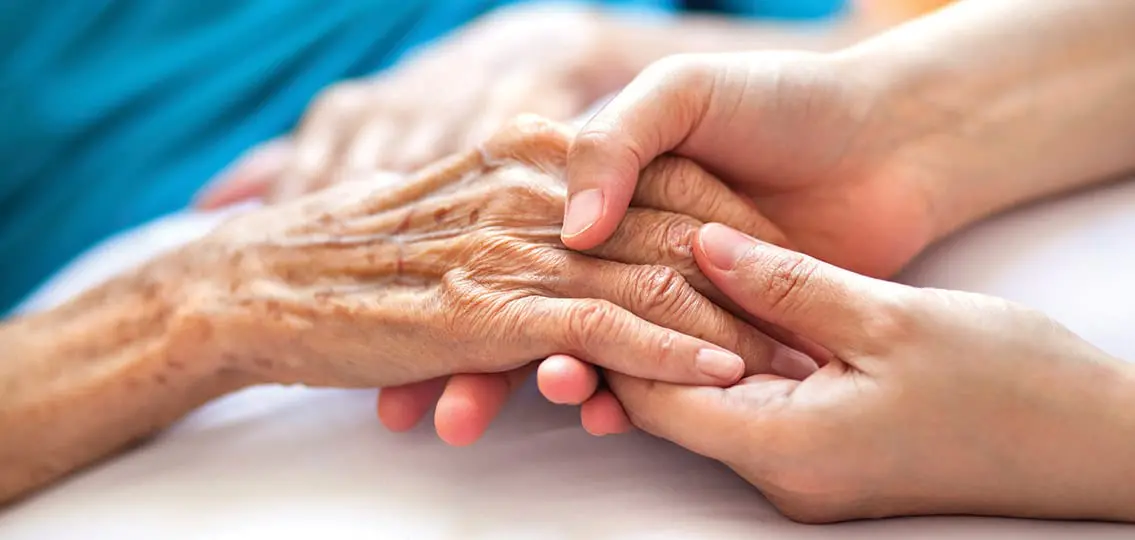
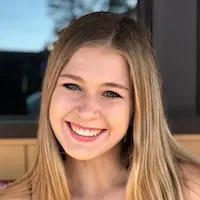 TEEN | By Cassidy Hilmar
TEEN | By Cassidy Hilmar PARENT | By Shannon Hilmar
PARENT | By Shannon Hilmar EXPERT | By Casey Durkin
EXPERT | By Casey Durkin


